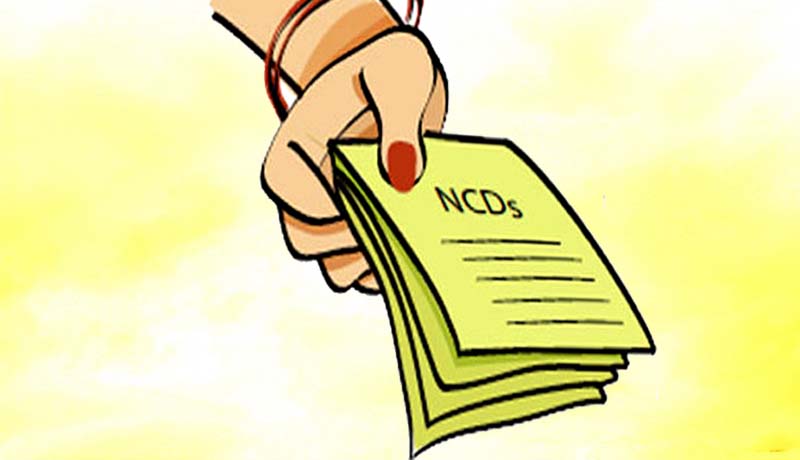If you are looking for an investment which offers high returns with moderate risk, you can go with Non-Convertible Debentures(NCDs). NCDs gives you the flexibility to choose between short and long tenures.
What are Non-Convertible Debentures ?
In order to understand non convertible debentures, it would be better to understand convertible debentures first. As the name says suggests convertible debentures are the ones which are converted into normal equity shares after a specified period. Till that point of time these debentures earn regular income in the form of interest. However, once these debentures are converted to equity shares, they act same as normal shares.

So, Non convertible debentures (NCD’s) are those debentures which can not be converted to equity shares. NCD in India works almost like a company fixed deposit, where you lend a company in order to get some interest income and the amount back after some years. However, before you but you must check the rating of that specific bond. Such debt bonds are usually rated by credit rating agencies such as CRISIL. A good rating tell us about the reasonable assurance of safety, return of principal and interest as well.
Secured and Unsecured NCD
Secured Non convertible Debentures (NCD) are backed up by few assets which can be liquidated to pay off the bond holders if something goes wrong. This is the reason the returns on secured NCDs are said to be lower than unsecured NCDs.
Unsecured Non convertible Debentures (NCD) are the type of NCDs that are not backed by any assets and just in case the company is in financial crises, there can be an issue while paying back the bond holders. Only after making the payment to every entity which has some kind of security, the unsecured NCD bond holders have some kind of chance of getting their money back. So for this reason unsecured NCD’s have high interest rates.
How to buy Non-Convertible Debentures ?
In order to buy Non-Convertible Debentures, you need to have the usual trading and a demat account. The process to buy a NCD is similar to that for buying a share.
A lot of companies recently started offering non convertible debentures for investors. Some of the names include India Infoline, Religare, Shriram Transport Finance etc. These companies actually raise money by way of Non Convertible Debentures for a term that ranges from 1 to 5 years offering you a coupon or interest rate. Lets understand this by an example, Let’s say Religare offered NCDs at a face value of Rs 1000. These NCDs gets listed on the exchanges at a price. If you are looking to hold the NCDs, you can hold them and Religare will pay you back after the tenure and for the time period you hold you continue to get the interest. If you are in need of money you can sell the NCDs at the exchanges, however you will not receive any interest in such a case.
Non-Convertible Debentures Vs Fixed Deposits
Non-Convertible debentures (NCD) may deliver higher returns than bank Fixed Deposits but are considered more risky. They are not very liquid due to the low trading volume. Invest in NCDs only if you ready to take a risk to get that extra return.
| Non Covertible Debentures | Fixed Deposits | |
|---|---|---|
| Issuer | Corporate/NBFC | Bank |
| Safety | Can be secured against the assets or unsecured. Generally issued by leading corporates. | Highly safe, upto 1 lakh insured against insolvency of the bank. |
| Liquidity | Not very liquid. Can be liquidated only by selling on the exchange, which depends on demand. | Easy liquidity through loan against banks or break the FD by paying penalty. |
| Interest Rates | 10-12 % | 8-9 % |
| Tenure | 3-5 years usually. | Flexible options from few months to few years. |
| Availability | On public offer or through stock exchange | On Tap |
| Taxation | Interest income will be added to the income also capital gains tax if sold before maturity | Interest income will be added to the income |
| Tax Deducted at Source | No TDS | TDS for Interest above Rs.10,000 |
 Think Plan Do Act | Your Online Finance Companion
Think Plan Do Act | Your Online Finance Companion